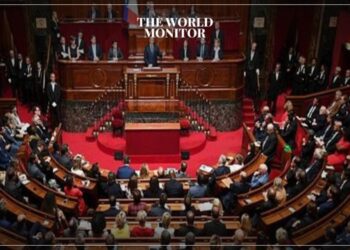The United Nations Support Mission in Libya (UNSMIL) plans to hold an emergency meeting with the parties involved in the crisis surrounding the Central Bank of Libya to reach a consensus, urging the adoption of four urgent steps to halt the current escalation.
In a statement on Monday evening, the mission expressed its “deep regret over the situation in Libya due to unilateral decisions,” warning that “insisting on these decisions or continuing to make more of them will have severe consequences for the Libyan people and will expose the country to the risk of financial and economic collapse.”
Emergency Meeting to Resolve Central Bank Crisis
The mission added that it intends to hold an emergency meeting with the parties involved in the Central Bank of Libya crisis to reach a consensus based on political agreements and current laws, emphasizing the independence of the central bank and ensuring the continuity of public services.
This step, the mission noted, is within its mandate as outlined in UN Security Council Resolution 2702 of 2023, particularly concerning conflict prevention.
The mission called for the suspension of all “unilateral decisions” related to the Central Bank of Libya, the immediate lifting of force majeure on oil fields, and the cessation of involving the country’s main income source in political conflicts.
The mission also urged the “de-escalation and refraining from using force to achieve political or factional gains,” in addition to “ensuring the safety of Central Bank employees and protecting them from threats and arbitrary detention.”
Creating Conditions for an Inclusive Political Process
The mission stressed that “resolving this emerging crisis is essential to creating favorable conditions for an inclusive political process, under UN auspices and with international support, aimed at putting Libya back on track for national elections, including reaching a consensus on a unified government to end the crisis of eroding legitimacy and institutional division.”
Oil Shutdown and Central Bank Leadership Crisis
Earlier today, the government appointed by the House of Representatives, led by Osama Hammad, declared a “force majeure” situation on all oil fields, ports, institutions, and facilities, halting oil production and export until further notice.
In a televised statement, Hammad said the decision was a response to “attacks on the leadership, employees, and departments of the Central Bank of Libya by groups operating outside the law, with incitement and assistance from the Presidential Council, which lacks legitimate authority.”
This comes as the head of the Presidential Council, Mohamed al-Menfi, appointed the Deputy Governor of the Central Bank, Abdul Fattah Abdul Ghaffar, to complete the handover procedures and assume the duties of the governor.






